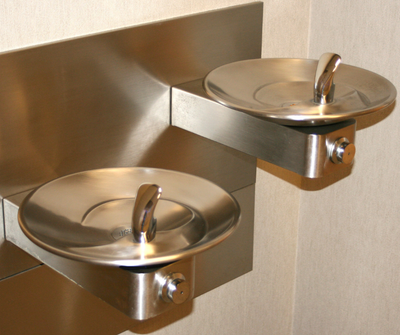Orthophosphate in Drinking Water
RSS
Analies Dyjak | Policy Nerd
Orthophosphate became popularized by the public in the 2001, during the lead crisis in D.C. Lead contamination in many cities including D.C. and Flint, occurs when a public water utility provider switches disinfectants from Chlorine to Chloramine. This switch results in lead pipe corrosion, which then allows for lead to leach into the drinking water supply. When the lead problem initially occurred, cities such as Flint, Michigan, Durham and Greenville, North Carolina, and Jackson, Mississippi didn’t learn from D.C’s mistakes and all had lead outbreaks. This article discusses the common additive used to combat lead contamination in drinking water.
What is Orthophosphate?
One of the methods used by municipalities to prevent lead service pipes from leaching is by adding phosphate to the drinking water supply. Orthophosphate is the corrosion inhibitor most commonly used by water suppliers. When added to a water source, it reacts with lead to create a mineral-like crust inside of the lead pipe itself. This crust acts as a coating which prevents further lead corrosion.Does Orthophosphate Fix Lead Contamination?
In terms of eliminating lead contamination at the exposure point, Orthophosphate does remove it from tap water. Some areas have found a reduction in lead concentrations of up to 90%. However, Orthophosphate is somewhat of a bandaid to temporarily fix the presence of lead in drinking water. Lead service pipes still exist and drinking water still technically passes through them. Additionally, if the orthophosphate layer is removed or breaks, lead will begin to leach back into waterways. Maintenance of lead service pipes can disrupt the crust and create cracks in the Orthophosphate layer. Finally, not all municipalities are adding orthophosphate to drinking water because of its cost. If you have any questions regarding drinking water contamination in your area, send us an email at hello@hydroviv.com.
If you’re interested in learning more about water filters that have been optimized for your tap water, feel free to visit www.hydroviv.com, reach out by email (hello@hydroviv.com) or through our live chat. We also frequently post water-related news on Twitter or Facebook.



